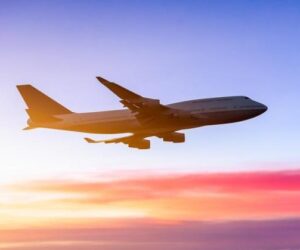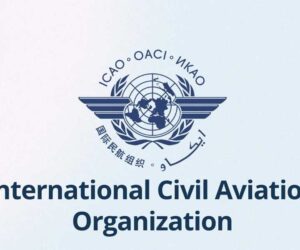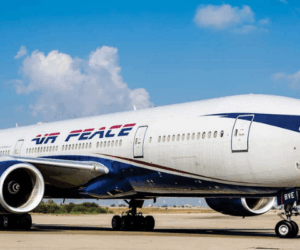5
When Nigeria’s national carrier, Nigeria Airways, was liquidated in 2003, and two decades later the Ministry of Tourism was scrapped and merged with Culture and Creative Economy, few anticipated the enduring vacuum these losses would create.
Today, industry experts warn that the absence of these twin institutions has left the country directionless in its quest to become West Africa’s aviation hub and a global tourism destination.
The result, they say, is visible in dwindling international passenger traffic, underutilised airports, and a tourism industry still struggling to find its wings.
End of an Era
Established in 1958, Nigeria Airways was once the pride of the nation – a symbol of post-independence confidence connecting Lagos, London, New York, and Johannesburg. At its peak, it operated over 20 aircraft, employed thousands, and projected Nigeria’s image across continents. But years of mismanagement, political interference, and mounting debt saw it grounded in 2003, leaving behind billions in unpaid liabilities.
Aviation unions, including the National Association of Aircraft Pilots and Engineers (NAAPE), still recall that decision as a costly error. “Anyone who has been in or around aviation for a while would easily agree that the ill-advised liquidation of the defunct national carrier, Nigeria Airways, is the evil wind that has bedevilled the industry till date,” said NAAPE President, Balami Isaac David, in an earlier interview with The Guardian.
Since then, Nigeria has relied entirely on private operators. But even with airlines such as Air Peace, Ibom Air, and United Nigeria Airlines and Overland Airways stepping in, the void remains. Without a flag carrier, the nation has lost a strategic tool for projecting soft power, promoting tourism, and capturing transit traffic – the lifeblood of any aviation hub.
Ethiopia and Rwanda offer striking contrasts. Ethiopian Airlines, a government-backed carrier, carried more than 17 million passengers in 2023–2024 and generated billions of dollars in revenue while helping the country position Addis Ababa as Africa’s busiest transit hub. In Rwanda, RwandAir and the Rwanda Development Board jointly promote tourism and air access, helping Kigali attract over one million visitors annually before the pandemic.
Tourism Without a Home
The October 2024 merger that dissolved Nigeria’s Ministry of Tourism was, in the view of stakeholders, another step backward. The ministry had been the country’s main policy driver for promoting tourism, investment, and destination marketing.
Ambassador Ikechi Uko, organiser of Akwaaba African Travel Market and one of Africa’s leading tourism voices, says the absence of a dedicated ministry has robbed the industry of focus. “Tourism isn’t yet a focus for the Nigerian government,” he told Daily Independent in a recent interview.
“There are so many things that should be done, not being done. Personnel, having the right appointments, people who have cognate knowledge of the environment, who can take decisions from day one. Not someone staying four years to learn. By the time the person has learned, the person is moved,” said Uko.
According to him, the last 15 years have been marked by inconsistent leadership and poor appointments. “Anywhere tourism has worked well, it has worked well when the right people get into positions. They know who to contact, they know who to network with, they know what sells and what does not sell. Nigeria hasn’t really started the tourism journey – it’s been the private sector pushing,” he added.
The result, experts note, is that while countries like Kenya and South Africa have developed strong tourism brands backed by national carriers, Nigeria’s efforts remain fragmented. Ghana, for instance, earned over $3.8 billion from tourism in 2023, according to the World Bank, while Nigeria’s official tourism earnings remain modest and poorly documented.
A Country More Connected, Yet Not a Hub
Despite its size and market potential, Nigeria has failed to convert connectivity into commercial advantage. Ambassador Uko believes the problem is not that Nigeria is disconnected, but that it lacks the infrastructure to serve as a proper hub.
“Nigeria is more connected than almost every other city in West Africa,” he explained. “Nigeria has 16 African airlines flying in and out of the country – that makes you one of the most connected in Africa. But in terms of transit passengers, Nigeria is poor. Nigeria cannot be a hub because you do not have transit facilities for passengers going through Nigeria to other destinations.”
He adds that the absence of seamless connectivity discourages tourism. “Every December, it’s difficult to move around, and those are the festival times in Nigeria. The airlines can’t handle it; the airports can’t process. Even most airlines release more planes, yet they never deliver the capacity that is needed,” he said.
His concerns are backed by figures from the International Air Transport Association (IATA), which show that while Nigeria accounted for over 2.1 million outbound international passengers in 2023, its inbound and transit traffic remains disproportionately low compared to its regional peers.
Visa and Marketing Challenges
Infrastructure is not the only issue. The ease of obtaining visas remains inconsistent, though Uko acknowledged improvements. “The Nigerian portal works today, doesn’t work tomorrow. But in the last few days before Akwaaba, it became very efficient. Practically everybody who applied got their visas within a day,” he said.
Still, he believes Nigeria’s image abroad remains under-marketed. “Most of our guests were totally thrilled being in Nigeria. They were blown away by the things they saw. Most of them think Nigeria is under-marketed – and that’s true. Nigeria is so blessed that the world doesn’t know. They only get the negative vibes that everybody communicates,” he noted.
Why Airlines and Tourism Need Each Other
Uko argues that tourism “flies on the wings of the nation,” and that without a national carrier or well-coordinated tourism agency, the country lacks a brand identity. “Somebody has to own the brand to sell the brand,” he said. “Of all the top ten countries in Africa in tourism, every successful one has a national carrier and a tourism agency. They work together to promote. That is the success model.”
He cited Kenya Airways and the Kenya Tourism Board as an example of synergy between aviation and tourism that Nigeria lacks. Similarly, Ethiopian Airlines and the Ethiopian Tourism Organisation jointly promote “Ethiopia: Land of Origins,” a campaign that draws thousands of visitors yearly.
West African Hub Dream
Nigeria’s ambition to be the region’s aviation hub is undermined by these structural gaps. IATA data shows that over 70 per cent of transit traffic between West Africa and Europe currently flows through Addis Ababa, Nairobi, Doha, and Istanbul – not Lagos or Abuja, which serve as the only entry points for international carriers. The country’s major international airports, though upgraded, remain primarily point-to-point facilities rather than transfer hubs.
Industry observers say that without a flag carrier to anchor connectivity and a dedicated tourism institution to create demand, Nigeria’s aviation infrastructure will continue to underperform. “The success in Africa has been that every successful country in tourism, their tourism has been driven by their national airline and their tourism agency,” Uko reiterated.
The Way Forward
Experts recommend that Nigeria consider a hybrid national carrier model – commercially run, with strong governance, but backed by the state for strategic routes. A revitalised tourism agency, adequately funded and empowered, could drive destination marketing and visa liberalisation.
Former Ethiopian Airlines CEO Tewolde Gebremariam once remarked that “a national carrier serves the people in good and bad times … Nigeria deserves a national carrier, not because it is fashionable but because for strategic reasons.”
Nigeria’s private airlines have shown resilience, but Uko believes they cannot carry the national image alone. “Private airlines can also step into those shoes,” he said. “But the marketing and promotion of the national brand shouldn’t be left entirely to them. It’s usually not for profit.”
A Call to Action
Nigeria stands at a crossroads. Without a national airline to showcase its skies or a ministry to coordinate its tourism strategy, it risks remaining a traveller’s waypoint rather than a destination. The potential is enormous: world-class festivals, diverse cultures, and iconic landmarks – from the Osun-Osogbo Grove to the Yankari Game Reserve – all waiting to be rediscovered.
But for now, the skies remain fragmented and the nation’s tourism voice has fainted. Until the country aligns aviation and tourism under coherent national vision, the dream of being West Africa’s true hub will remain just a dream.








